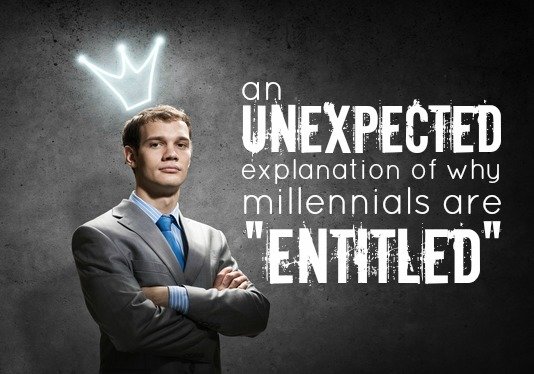
It’s hard to make it through a day without hearing about “entitlement” – especially in a negative context. To be entitled simply means that one believes that he or she deserves something. A sense of entitlement can be valid, i.e., you pay money for a car, so you’re entitled to have that car work as advertised and promised. You sign a contract with a home builder; you’re entitled to have that contract honored. It’s psychologically valid and healthy to feel that way.
However, an entitlement mentality in an irrational or neurotic context is different. A person with that mentality feels entitled to things that he or she did not earn, and therefore does not deserve. Not surprisingly, this attitude often plays out with money or property, especially in families or personal relationships. The premise is stark and straightforward: “You have something. I don’t have it. I need it. Therefore, you should give it to me.” We hear the very same thing in politics and government: “So-and-so has more money than he needs. Somebody else has less money than he needs. Therefore, so-and-so must give somebody some of that money. It’s only fair.” But it’s not fair. And clever politicians line their pockets and those of their supporters with this guilt-inducing mentality!
What about the equally stark fact that the money or property actually belongs to whomever owns and/or earned it? Can that right of ownership simply be wished away? If it can in some cases, but not in others, then by what standard do we decide? In politics, it’s a legal and property issue; ultimately one of individual rights. In families and personal relationships, the themes are more psychological. Rather than tax collectors, we have guilt collectors; those in your personal life who will say (or imply), “I need. You have. Therefore you must give.” Whether the issue is money, property, time or attention, it always boils down to the same thing: “I need. You have. Therefore, you must give.”
Just because a person needs something doesn’t automatically make it another’s obligation to give something away. Note the word “automatically” – a chosen charity or a need that you wish to fulfill for somebody is an entirely different thing. But why should I give up something simply because you don’t have it? By the same (circular) logic, once you have it, then shouldn’t you give it back to me, since I no longer have it? Is the fact that one needs something always due to negligence on the part of another? Perhaps he or she squandered the money, which is why they no longer have it. If that’s the case, then won’t one’s giving something therefore reward that carelessness? In fact (and the guilt collectors know this all too well), it could even create an unhealthy dependence on that help.
The guilt collectors in families – and in government – count on you to never ask those questions. And trust me: Asking those questions will trigger a lot of hostility and name-calling. And they and their advocates will do everything to lay on the guilt even more. But when all is said and done, emotions cannot obliterate facts. And the simple refusal to ask legitimate questions does not render logic impotent.
Of course, helping others is never automatically wrong. But your choice to help a worthy cause or someone you care about should not be mindless. I love donating to charities I care about, and it’s entirely reasonable to know exactly WHAT you’re providing before you provide it. In spite of the clever but irrational guilt collectors, it’s reasonable to remember that you’re never automatically obliged to anyone unless it’s of your own free will and it makes you happy to do so.
Follow Dr. Hurd on Facebook. Search under “Michael Hurd” (Rehoboth Beach DE). Get up-to-the-minute postings, recommended articles and links, and engage in back-and-forth discussion with Dr. Hurd on topics of interest. Also follow Dr. Hurd on Twitter at @MichaelJHurd1, and see drmichaelhurd on Instagram.
